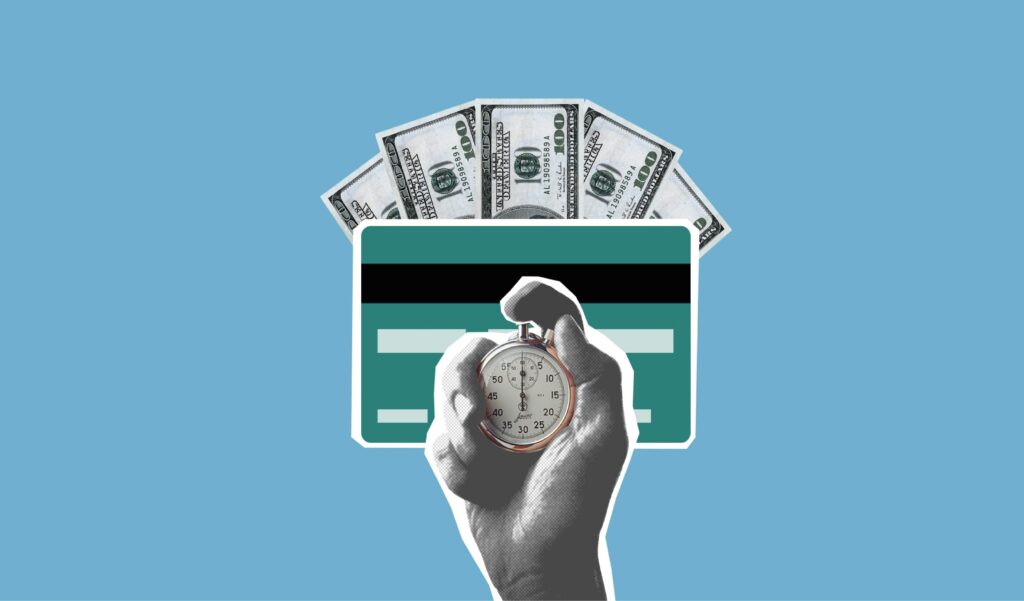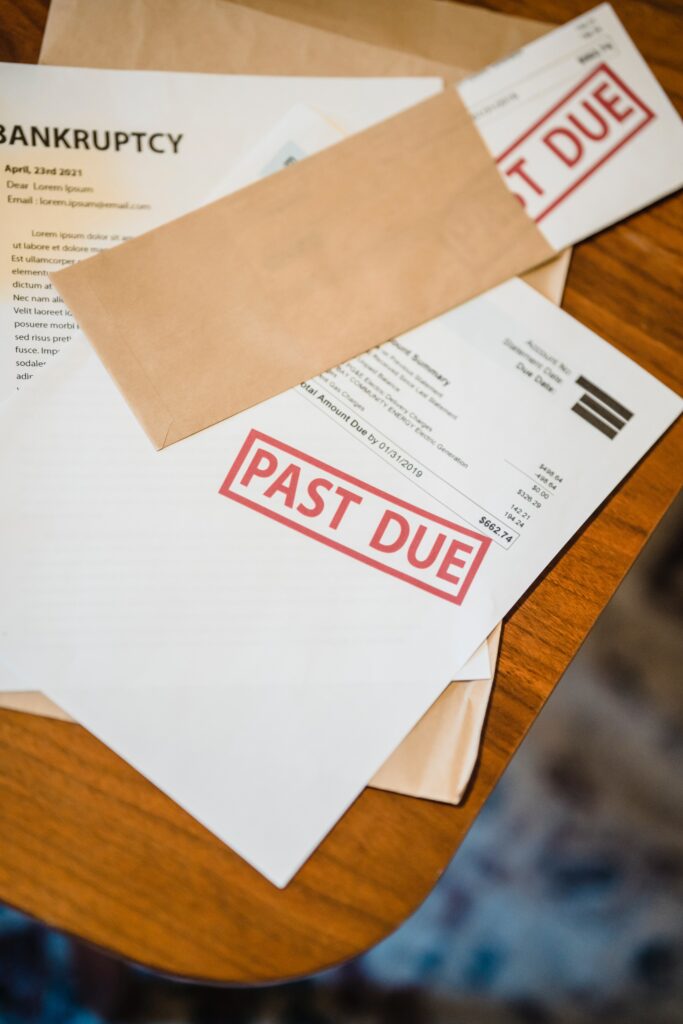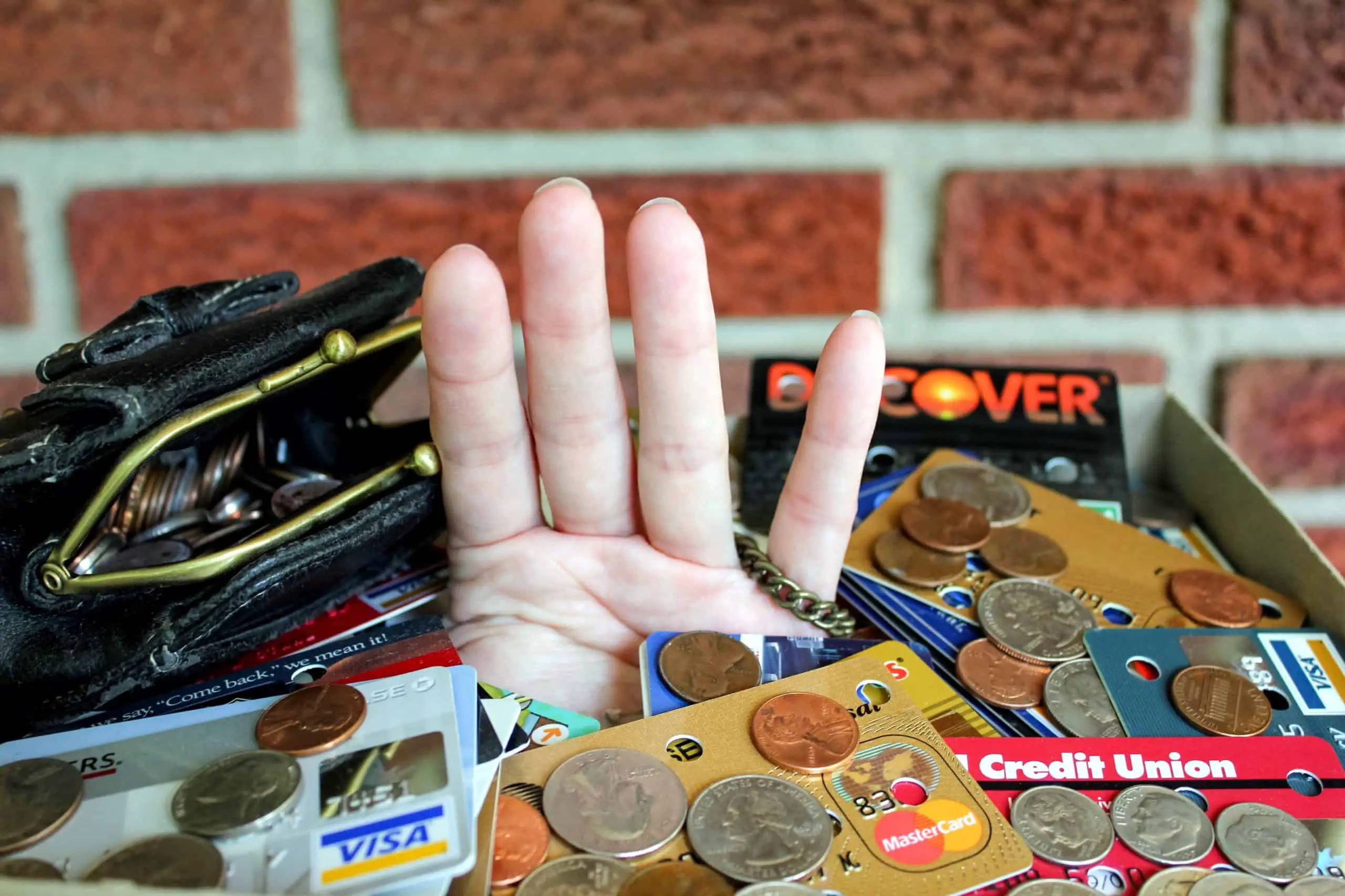How Long Does It Take To Repair Credit – The Complete Guide
Having a bad credit score can impact your financial life in several ways. It makes it tough to qualify for a new credit card or a mortgage loan, while the interest rates can be sky-high on loans that you do get approved for.
So, the big question for all the consumers that wish to get their scores up fast is – how long does it take to repair credit? It takes anywhere between 2 or 3 months to a couple of years to repair your credit, depending on the type of negative items on your report. Since it all depends on your specific financial situation, this guide should provide a more thorough answer.
What Determines The Time Needed For Credit Repair?
Your credit score represents the evaluation of your creditworthiness based on the information from your credit reports. So, it all depends on the information from your credit reports when it comes to determining the time needed for credit repair.

It also depends on your credit report level, since it’s easier to increase a lower credit score by 50 points than to increase a good credit score to an excellent one.
According to the FICO credit scale, there are four credit rating levels:
- Bad credit score
- Fair credit score
- Good credit score
- Excellent credit score
It’s important to realize your starting point when repairing credit to get a bigger picture of the needed time frame.
According to the research conducted by Experian in 2021, the average credit score in the US is a FICO 714. That falls under the “Good” credit range which goes from FICO 690 to FICO 719.
A bad credit score is considered to be in the range between FICO 300 and FICO 629, the “Fair” score is between FICO 630 to FICO 689. Finally, the “Excellent” credit score is in the range of FICO 720 to FICO 850.
So, how long does it take to repair bad credit? Well, it’s easier to climb from the bad credit range to a “Fair” score than to do the same lap from the “Good” to the “Excellent” score.
However, if you want to qualify for credit cards and loans with repayment terms that an average US consumer gets, it takes reaching the “Good” credit level.
That being said, it’s also important to check your credit score to see which level it fits in. Other than that, it’s all about the information listed in your report, especially negative information that leaves a lasting mark.
Some things like a single missed payment can be fixed within months, while bankruptcy listings and charge-offs can take much longer to fix.
Credit Report Items That Reduce Your Score
The first thing you need to do to get a time frame needed for your credit recovery is to check the items in your credit report. Going over all the negative listings in your report will give you an idea of how much time and effort you’ll need to invest to repair your score.
In general, even payments missed for 30 days can stick on your credit report for 7 years. On the other hand, Chapter 7 bankruptcies can stay on your report for up to 10 years.
Of course, it doesn’t mean you’ll have to invest 7 years to fix that item on your report. Still, it gives you an idea of what you have to change and what debt you’ll have to pay to raise your score.
It’s important to know for how long each negative item stays on your report, as well as how long it takes to fix it.
Late And/Or Missed Payments
Late payments are one of the worst things that can happen to your credit score because even a payment as low as $100 can stay on your credit report for up to seven years.

If you are late on your credit card or debt payment, make sure to contact the creditor to explain the situation. You need to guarantee that you’ll make the payment within days and prevent it from reaching your report.
In general, it takes being late for 30 days or more for the payment to reach your credit report. That doesn’t mean you should get in the habit of being late for 10 or 20 days, but at least it shouldn’t leave a mark on your credit history within that time frame which is also known as a “grace period.”
Along with the missed payment listing on your report, your credit score will also take a huge hit with each late payment.
Remember those FICO score levels we discussed a while back? Well, payment history makes up 35% of your total credit score value.
That’s why it’s not worth it to delay payments if you can afford to make them on time. If you just can’t pay on time, it could take up to 2 years to repair your score from a missed payment.
You can’t remove it from your report if it’s accurate information, but you can make a payment schedule to avoid missing a payment again. For credit card payments, it takes about 30 days for them to reach your report.
That’s because most credit card issuers report to the credit bureaus at the end of each month. So, making a timely payment today can slightly affect your credit as soon as the next month.
Charge-Offs And Collections
While being late with debt repayment for more than 30 days is bad enough, it gets even worse if you don’t pay within 120 or 180 days. This is the period where most credit card companies simply discharge your debt believing that they will hardly ever collect it from you.
However, it’s not a good thing since it results in a charge-off being listed on your credit report. You can’t remove charge-offs and they stay on your report for 7 years.
To make things even worse, your credit report and score could take a double hit in this case. Most credit card companies sell charged-off debts to collectors, and collection agencies will own your debt in that case.
They will try to collect the amount from you, or at least negotiate a percentage of the total debt sum being paid.
In this case, a collection account will show up on your credit report, making things even worse. It might be possible to ask for a “pay for delete” option, but it’s not something that all the agencies allow.
It takes at least a year or two to partially repair your credit from charge-offs and collections. Your credit report will only be fully recovered once the 7 years from the charge-off dates have passed, and the item gets removed from your report.
Bankruptcies And Loan Defaults
After a Chapter 7 or Chapter 13 bankruptcy, your score can be affected for 7 to 10 years. You’ll have to build up your credit from scratch, as it takes a huge hit by virtue of bankruptcy filing.

It takes about 2 years to get your credit score in the good range after filing for bankruptcy.
Bankruptcies stay on your report for a long time and represent a huge red flag to future creditors. To rebuild credit after a bankruptcy, you can use a credit repair service or make a financial plan yourself to raise your credit score going item by item.
A loan default also stays on your report for 7 years, and it reduces your creditworthiness by far.
It also depends on the type of loan, since mortgage loan defaults could hurt your score the most. One of the options that could save you from defaulting on your loan is to take a debt consolidation loan.
After a default, it takes proving your creditworthiness from the start, and you can use a secured credit card or a credit builder loan to establish a history of timely payments after a default.
Maxed Out Credit Cards
Having maxed-out credit cards can also make the credit repair process tough. It can make your credit scores drop, and it could take at least a few months to repair it.
Luckily, there are some things you can do to reduce the impact of maxed-out cards on your credit score. You should try to keep up with the payments as much as possible and create a monthly budget.
That way you might be able to only use the cards for necessities and things you need the most. Once you are able to keep up with the payments, you can reach out to your credit card company and ask for a higher limit.
The reason why your maxed-out cards affect your score so much is because of the high credit utilization ratio. It makes up 30% of your credit scores and refers to the amount of revolving credit you are using.
So, by increasing the limit and cutting unnecessary expenses, you’ll be using less of your credit card limit.
As credit card companies report to the credit bureau monthly, you can see an increase in your score within a few months.
Tips For Cutting The Time Needed For Credit Repair
So, now you see that depending on the information in your report, it can take anywhere from a couple of months to several years to repair your bad credit.
Fortunately, there are some things you can do to reduce the time needed for credit repairs, but financial discipline is the most important one.
Regardless if you hire a credit repair company or do it yourself, you’ll need to know what’s causing your score to drop.
So, getting copies of your credit reports from each of the three major credit bureaus is crucial. You should go over your reports and compare the listings to see what needs to be done for a fast repair.
1) Start Making On-Time Payments
Your credit score will be stuck in place for as long as you fail to make timely payments. If you have to make late payments, make sure to contact the creditor if you have a good credit history with them.

Try to at least pay before 30 days have passed from the due date for the payment. You should know that all of your efforts go in vain if you miss a single payment, so preparing a monthly budget is the best choice.
You can also take some personal loans to repay other loans, but that can also hurt your score if you have too many loan inquiries in a short period.
2) Ask For A Credit Limit Increase
As mentioned, credit utilization plays a significant role in determining your credit scores. To keep it optimized, you should have all of your revolving credit usage below 30%. So, it’s not only about a single credit card, but rather about all of your credit card accounts.
You should see to it that your credit limits allow you to get below those 30%, and extending the limits can drastically help. You can still spend the same amount every month without hurting your utilization rate.
Still, it’s not certain that you’ll get the credit limit increase in the first place, so you should interact with your credit card company to inquire about the possibility.
3) Pay Your Debt
This mainly refers to charge-offs and accounts in collections. As mentioned, it doesn’t mean that the negative marks on your report will be the only thing pulling down your credit.
There’s also the status of your account listed on credit reports. Changing the status to “paid” can help increase your creditworthiness in the eyes of lenders.
It can also have a small impact on your credit score, but the most important thing is that it at least shows your determination to settle the debt when possible.
You can sometimes even remove collections from your report, so it’s an option worth taking a shot at.
4) Consider Secured Credit Cards
Using a secured card can boost your credit history as you’ll be making payments within the credit limit of the amount of your deposit.
It helps establish a history of timely payments, and some credit card companies will even let you upgrade to an unsecured card if you handle secured cards responsibly.
Especially if you were in great debt or had numerous missed payments on your report, generating positive payment history is crucial.
Make sure that the credit card issuer reports to all three credit bureaus so you can see the change on all of your credit reports.
With a secured card, your monthly updates can result in a credit score increase within a few months.
5) Monitor Your Credit Report
Some credit repair companies let you use a credit monitoring service, and this can come in handy when you are trying to rebuild credit fast.
You can keep track of the changes in your reports, and even file disputes if you notice any suspicious listings.
Also, you should track your credit score which might come with a fee charged by the credit bureaus.
You can follow up on your credit score and credit history for free sometimes by inquiring about the possibility with your bank or credit card furnisher.
Final Thoughts
Well, that hopefully settles it with your question about how long it takes to repair credit. The truth is, it all depends on items in your report and it’s impossible to provide an exact time frame needed.
That being said, you’ll now know what you can expect based on negative information from your report and the impact that information leaves on your credit history.
Frequently Asked Questions (FAQ):
How long does it take to rebuild credit from 500?
It takes from a few months to a year to rebuild credit from FICO 500 to a fair credit range. Usually, it takes less time to rebuild credit that’s as low as FICO 500, than for the credit in a higher range. You might even make major changes within 30 days, but it still takes a few months for those changes to appear on your reports.
Is it true that after 7 years your credit is clear?
It’s true that most of the negative information from your credit reports is discharged after 7 years. However, your rating is still impacted by any other changes in your report during that time. So, it takes positive financial practices and patience to get a clear credit history after 7 years from a negative listing.
Can I rebuild my credit after 2 years?
Yes, you can rebuild your credit after 2 years even if you had long-lasting derogatory marks on your reports. You’ll need to create a budget plan, make timely payments, and lower your credit utilization to repair your credit within 2 years.
How can I raise my credit score by 200 points in 30 days?
It’s impossible to raise your credit score by 200 points in just 30 days since it takes at least a month for most credit card companies and creditors to update the information with credit bureaus. Even if it took less, it takes much more effort to repair the credit for 200 points or more. If you stick to a financial plan and make positive financial practices, you can expect to raise your bad credit score by 200 points within 6 months to a year.



